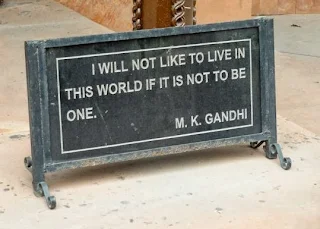 |
| Aijaz Zaka Syed |
Said Aijaz Z. Syed - a Gulf based commentator and author - in his article published in Arab News under the title "Gulf between perception and reality of Muslims".
The article provides an insight into the thought process of those who are muslims in a true sense. Aijaz cites recent incidents of extremist violence, around the world, like — the Nairobi mall siege, the attack on a church in Pakistan and attack on college students in Nigeria — and emphasises that people behind such acts of violence have nothing to do with Islam. Further, he says that perpetrators of these shameful acts cannot be Muslims because Islam represents and stands for peace — in Arabic it literally means peace — and mercy. There is a huge gulf between what Islam preaches and what its followers practice in almost all walks of life.
In a news item published in Arab News of September 30, 2013, it has been reported that increasing number of young students between the ages of 15-17 have been found, by their teachers, mocking Islam, spreading illicit ideas and expressing disrespectful views about Islamic laws at schools in Saudi Arabia. Students have been found laughing during prayers. Teachers feel that most of these children have been affected by globalization and are carried away by a desire to imitate what they deem as Western freedom expressing disrespectful views about Islamic laws. In order to curb this kind of illegal behavior, the education ministry of Saudi Arabia has warned students and contemplated penalties for violating the code of behavior including, among others, preventing a guilty student from pursuing studies for one academic year. The ministry has expressed concern about the harmful effect of such behavior on students and the community. The ministry's codes of conduct for students aim to build a generation committed to Islam and the country.
"The great faith insists on universal brotherhood and equality of all human beings before God. It says all human life is sacred and warns taking one innocent life is akin to killing entire humanity. But what does our conduct demonstrate? No matter what we say in our defense or that of Islam, ultimately we are judged by our actions, not by our words. We can go on claiming for all eternity that the Holy Qur’an, the last revealed divine testament according to our belief, preaches universal brotherhood and that this is the first universal charter of human rights. But do we really believe in and practice what we preach? More to the point, what message does this send out to the world? We may go on righteously protesting that this has nothing to do with faith. But like it or not, such reasoning doesn’t cut it. The world judges us by who we are, not by what we claim to be. If we stand for peace and salvation, our lives must attest to it and our actions must show it. It is as simple as that", writes Aijaj in his article.















